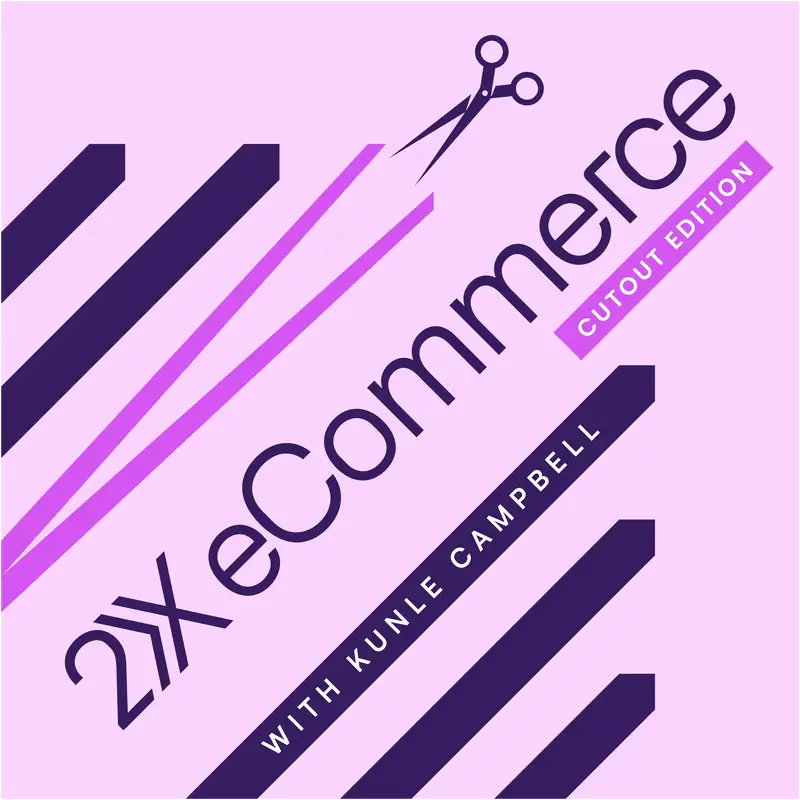Cutout 7: Why Community-Driven Brands Are Disrupting Traditional Markets → Oren Schauble
Download MP3Host: Why build a community rather than build a company? I’d love to get into your mode of thinking right now.
Oren Schauble: No problem. So, I think there’s a couple of things that I’ve noticed as I’ve been working with all these larger brands and then over the last few years. I basically noticed this trend of companies that are able to move much faster and achieve better margins and results by operating as global companies.
The idea is that if you can go direct to the factory in China, Pakistan, or wherever the product is best made and skip any middlemen, you can optimize your margins in ways that were impossible before platforms like Alibaba enabled connections between East and West. Additionally, you can work with experts at various price points and in different markets. For instance, one of the companies I work with has designers in Eastern Europe, developers in India, they produce their products in Hong Kong, and they have a team in the UK and the U.S. that manages day-to-day operations. They’re all playing to their strengths. They actually sell products on Amazon in Europe because they’ve identified that Amazon Europe is less developed than Amazon U.S. So, these companies can develop new relationships in this new world, providing an interesting opportunity.
Host: Interesting. There’s a famous SaaS quote, which is if you want to build a product, it should be 10X better than what’s out there by the competition. In the physical world, I would think it’s different. So my question is, what magnitude of differentiation should be the absolute minimum or what should entrepreneurs or creators aim for in terms of differentiation?
Oren Schauble: Yeah, so I think it’s a sliding scale based on how big you want your business to be. When I talk to businesses, they fall into one of two categories. One is people trying to build a $1-5 million-a-year business that cash flows well, that they can keep small but make really good money. For that kind of business, where you sell maybe direct to consumer, on Amazon, in some light stores, or with some medium-sized retail distribution, you don’t need to 10X the quality of the experience. What you need to do is 1.5X the quality for a specific niche or with a specific differentiator. That’s a great business for most people to build, and it presents an interesting opportunity for a lot of entrepreneurs.
If you want to create a much bigger business, on the other hand, this is the other side of people I talk to who say, “Hey, I want to dominate this industry. I want to create a really large business, maybe a $100 million business, and we’re going to do mergers along the way. We’re going to really own this product category.” That’s when you need to have that higher level of differentiation. In the physical product world, 10X differentiation is a lot and may almost be impossible. But 2X or 3X, or just unbelievable differentiation on one point—like an unbeatable price or incredible customer service—can work. It’s these kinds of differentiations that help you build a huge brand because otherwise, you’ll hit a ceiling. If it doesn’t move on its own, if people don’t recommend it to others because of how great the experience is, it’s very hard to reach that $100 million range. Luckily, there’s a scale depending on where you want to go.
Host: You jumped on the industry tailwind with cannabis legalization and managed to take your company public. How long did it take?
Oren Schauble: Yeah, so we started the process about three and a half years ago. It took about two years of preparation, including an initial merger with three companies. We did a reverse merger with an existing public shell in July of last year and then merged with a series of companies in the following months. All in all, it was about two years from the initial concept of rolling up some of these companies to executing it. There were a lot of people involved along the way, and it’s an exciting industry with a lot of interest from the stock market. Of course, the last few months have been a complicated time with what’s happening in the stock market, and the cannabis space is still generally in flux. But it was a great experience, and the overall project got a lot of traction. I learned a lot, and now I’m looking at how I can help other entrepreneurs who want to do similar things—whether they’re doing their own roll-ups or acquisitions, looking to go public, or just seeking insights. We crammed a lot of product development, work, and experimentation into a relatively short period.
Host: Mhm.
Host: So, thank you for tuning into this episode of the 2X eCommerce podcast. I hope you found it insightful and inspiring.
If you want to dive deeper into the topics we discussed today, you can find the show notes at subscribe.2xecommerce.com. Before we wrap up, I have an exciting announcement for you.
We’ve refreshed our weekly newsletter, designed to be your go-to resource at the intersection of commerce, healthy living, and the mindset of extraordinary leaders. If you are looking to stay ahead of the curve, get valuable insights, and be inspired every week, make sure to subscribe. Just visit subscribe.2xecommerce.com and sign up.
Don’t miss out on this opportunity to elevate your business and personal growth. Until next time, folks, keep growing, keep learning, and keep pushing the boundaries of what’s possible. This is Kunle Campbell, signing off. Cheers.
Creators and Guests


